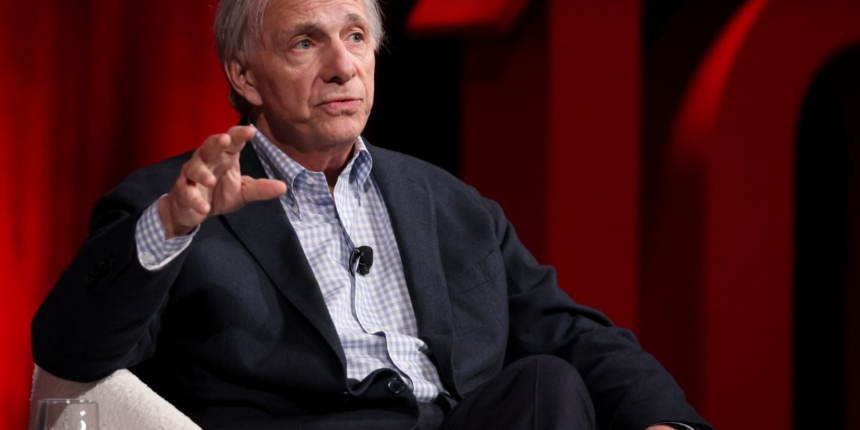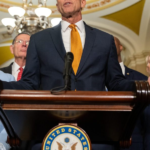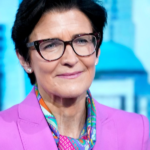Everyone from Jamie Dimon to Jerome Powell believes a national debt crisis is looming, they just don’t know when it will hit. Ray Dalio isn’t afraid to put a timeline on it: He says a “debt-induced heart attack” will happen under the current administration, in two or three years at most.
Dalio is no stranger to sounding the alarm on this topic. Earlier this year he said economists who believe America can continue to build its debt burden without consequence don’t “understand the mechanics” of the issue.
And this week he put an imminent timeframe on the problem, adding this is in part due to the policies of the second Trump administration.
Despite Trump touting his second term as a year of cost-cutting and efficiency (already, the Department of Government Efficiency months under Elon Musk are fading from view), the Oval Office raised eyebrows with its One Big, Beautiful Bill Act, which Trump touted as the largest tax cut in history for working and middle-class Americans.
But it isn’t conducive to rebalancing the books. If an entity—public, private or individual—wants to reduce its debt it has two options: Borrow less or bring in more. Reducing tax revenue deliberately brings in less, and the Trump administration’s borrowing hasn’t showed signs of meaningfully slowing.
The CBO, for example, said the bill will add $3.4 trillion to national debt—though countered that most of this cost will be offset by the revenues generated by tariffs. That is the view generally shared by economists, that Trump’s White House won’t accelerate a national debt reckoning but it won’t delay it, either.
And while Dalio made it clear that the eye-watering debt pile was not a fault which can be placed on one administration or the other, his concern about the present government is that no one will stand up to the powers that be for the good of the economy.
“And by the way, during such times most people are silent because they are afraid of retaliation if they criticise.”
With this in mind, Dalio likened the U.S. economy to a body’s circulatory system riddled with plaque, with interest payments eventually squeezing out other necessary forms of spending.
At some point, he said, buyers of U.S. debt will begin to question whether the government can function under these conditions: “The demand for debt will unlikely keep up with the supply.”
Gomes explained: “If at some moment these folks that have so far been happy to buy government debt from major economies decide, ‘You know what, I’m not too sure if this is a good investment anymore. I’m going to ask for a higher interest rate to be persuaded to hold this,’ then we could have a real accident on our hands.”









